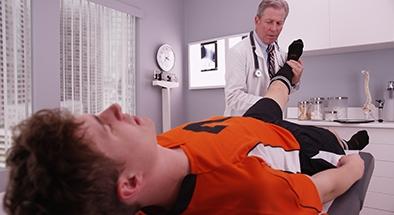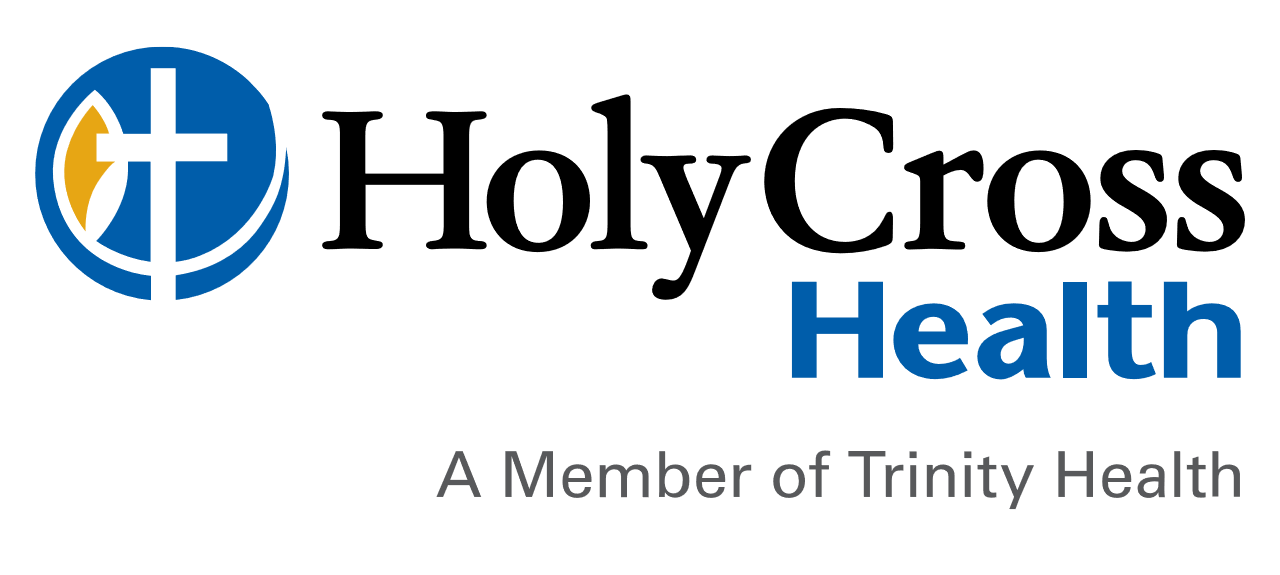Sports Medicine

Sports Medicine
Sports Medicine deals with injuries or illnesses resulting from participation in sports and recreational activities. Sports Medicine focuses on preventing injury as well as delaying surgery through various injury management and therapeutic techniques.The American College of Sports Medicine promotes and integrates scientific research, education and practical applications of sports medicine and exercise science to maintain and enhance physical performance, fitness, health and quality of life.
Holy Cross Orthopedic Institute in Fort Lauderdale, FL has non-surgical Sports Medicine specialists, Fernando Manalac, MD, MMM and Dellene Troy, DO, on staff for diagnosis and conservative management of musculoskeletal injuries. In addition, our orthopedic surgeons, including Ross Wodicka, MD, also offer many minimally invasive, robotic and traditional surgical treatments for these injuries.
Musculoskeletal injury refers to damage of muscular or skeletal systems, which is usually due to a strenuous activity. The injury of these tissues may be sudden or chronic. It may involve tendons, ligaments, cartilage or bone. In some cases, nerve damage is also involved.
- Download our Sports Medicine brochure
- Download the Running Medicine rack card
- Download the Concussion Program rack card
- Download the Sports Medicine Outreach rack card
Musculoskeletal injuries include, but are not limited to:
Sprains: A sprain is a stretched or torn ligament, which is a tissue that connects bones at a joint. Twisting, falling or getting hit can cause a sprain. Symptoms include bruising, swelling, pain and inability to move your joint.
Tendonitis: Tendonitis is the severe swelling of a tendon (flexible connective tissue that connects muscle to the bone) caused by repeated injury to that area of the body. Symptoms include pain and soreness around a joint. Learn about tendon pain and available treatments for tendonitis, jumper's knee, tennis elbow, plantar fasciitis, golfer's elbow and other causes of tendon pain.
Strains: A strain is a stretched or torn tendon or muscle. Tendons connect muscle to the bone, and these tissues can be strained by pulling or twisting. Symptoms include swelling, muscle spasms, pain and difficulty moving the muscle.
Osteoporosis: Osteoporosis means “porous bones.” It is a condition in which bones lose calcium content, becoming more fragile and apt to break.
Fractures: A fracture is a break (usually in a bone). If the bone punctures the skin, then it is called a compound fracture. Fractures may be caused by sports injuries, falls, car accidents. It may also be caused by overuse or by osteoporosis.
Dislocations: Dislocations occur at the joint when the ends of your bones are forced out of position. A fall or hard impact can cause a dislocation. Symptoms include pain, swelling and you can visibly tell that the joint is out of place. You will also feel a difficulty or inability to move it.
Osteoarthritis: The most common type of arthritis, osteoarthritis is a degenerative joint disease common among the elderly. It affects the cartilage – the tissue the covers the ends of bones at the joints. When this tissue wears away or breaks, the bones rub together which causes swelling, pain and difficulty in moving of the joint.
Back Injuries: Common back injuries include herniated disks, sprains, strains and fractures, which result in limited movement and pain.
Neck Injuries: Neck pain is very common and may be caused by strains or sprains in the various parts of your neck (tendons, ligaments, nerves, muscles, etc.)
In addition to musculoskeletal injuries, sports medicine also treats / involves:
- Brain / head injuries
- Computerized Neurocognitive Test / ImPACT Testing
- Nutrition, supplements
- Injury prevention
- Joint Preservation
- Exercise prescriptions to improve fitness
- Maintaining activity for those with chronic illness (asthma, diabetes, etc.)
- Strength training / conditioning
- Guidance on overall healthy lifestyle
Our orthopedic and sports medicine physicians in South Florida practice in Fort Lauderdale, Lighthouse Point and Boca Raton, and they help patients maximize physical functions and minimize disabilities and time away from school, work or sports.
Learn more about Sports Medicine from Dr. Manalac:
Talk to your physician about preventing musculoskeletal injuries and the appropriate treatment options for your acute or chronic injuries.
Learn more about the Holy Cross Medical Group sports medicine physicians:
